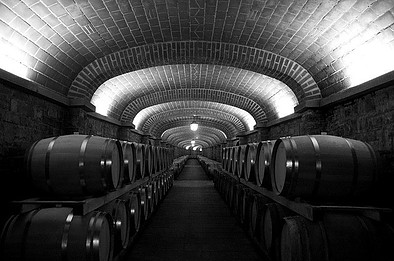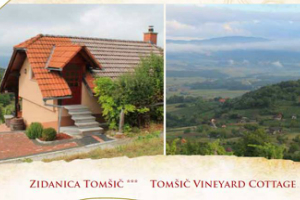Unfortunately, few growers can boast that they have a cellar that would at least somewhat meet the requirements of modern wine cellar maintenance. As a rule, this is one room where the grapes are processed, the must is boiled, and the wine ripens. The basement, or usually the wine cellar, is built so that they cannot maintain the proper temperature, which is necessary for proper fermentation of the must and care of the wine. And not to mention the cleanliness of some basements.
The Most Important Request at Wine Cellar Maintenance Is Cleanliness
The cellar in which the grapes are processed into the must and the wine-growing room must be kept in impeccable cleanliness. It should be thoroughly cleaned immediately before harvesting, and the walls should be covered with lime milk. The recipe for this is very simple. In 10 liters of water, put a pound of live lime and 20 decagrams of powdered sulfur. When the walls are dried, spraying with a blue vitriol solution is recommended, and the recipe is simple here. A five percent solution of blue vitriol has to be prepared to prevent mold development. The day before the grapes are processed, the cellar must be disinfected. This is done by sulfur dioxide. We burn 1 to 2 sulfur strips per meter of cubic space. We can also burn elemental sulfur powder. For each cubic meter of space, 30 grams of sulfur is required. We burn it in clay pots, placed in multiple places, as gaseous sulfur falls towards the floor. After 5 – 6 hours, we have to ventilate the room well.
Proper Wine Cellar Maintenance Has Required Coating Walls Also
The iron parts of the press also have to be protected from corrosion. The same goes for the iron hoops on the barrels, all of which should be covered with newsprint or plastic wrap or coated with petroleum jelly. Particular attention should be given to the condition of the walls. For example, for those who are more affluent, tiling with ceramic tiles is recommended. However, coatings with special colors such as façadex, then fungicide special, caroxide, or something else will be sufficient. Potatoes, turnips, cabbage, vinegar, oil, and herbs must not be stored in the wine cellar, as wine can easily absorb foreign odors. To help keep the wine cellar clean, the floor should be made of acid-resistant concrete or tiles.
The Importance of Temperature
In the wine cellar, thermal insulation is very important in order to maintain a uniform temperature in winter and summer. For white wines, for example, a temperature of 8-10 degrees C is required, and for red ones of 10-12 degrees. It is necessary to ensure such conditions that fluctuations in daytime temperatures do not deviate more than two percent, both descending and ascending. The humidity should be between 70 and 80%. The excess moisture in the wine cellar reduces the life of the barrels due to the increased reproduction of various types of fungi and molds. Therefore, good ventilation should be provided, as well as good sewerage to drain water from the basement. We can’t talk about the impeccable cleanliness of the cellar and vessels if we do not have enough running water. If the basement is not connected to the water supply, a hydro pack pump must be installed. Finally, we say that it is also necessary to have the possibility of heating the basement, i.e., the room of the boiling.
Hygiene of Cellar Equipment
We are all well aware of the fact that maintaining hygiene in the production of foodstuffs and, of course, in wine production also is very important. Cleanliness is exceptionally essential for achieving both product quality requirements and the cost-effectiveness of production. Why? The cost of eliminating the consequences of non-compliance with hygiene rules is far higher than the price of washing and renovating premises and equipment.
Regarding the importance of proper and economical maintenance of hygiene in the production of wine, there are developed a range of detergents and sanitizers for premises and equipment with which we achieve excellent results. Especially in the washing of tanks and the removal of wine stone, as well as the cleaning of the vacuum rotary filter.
